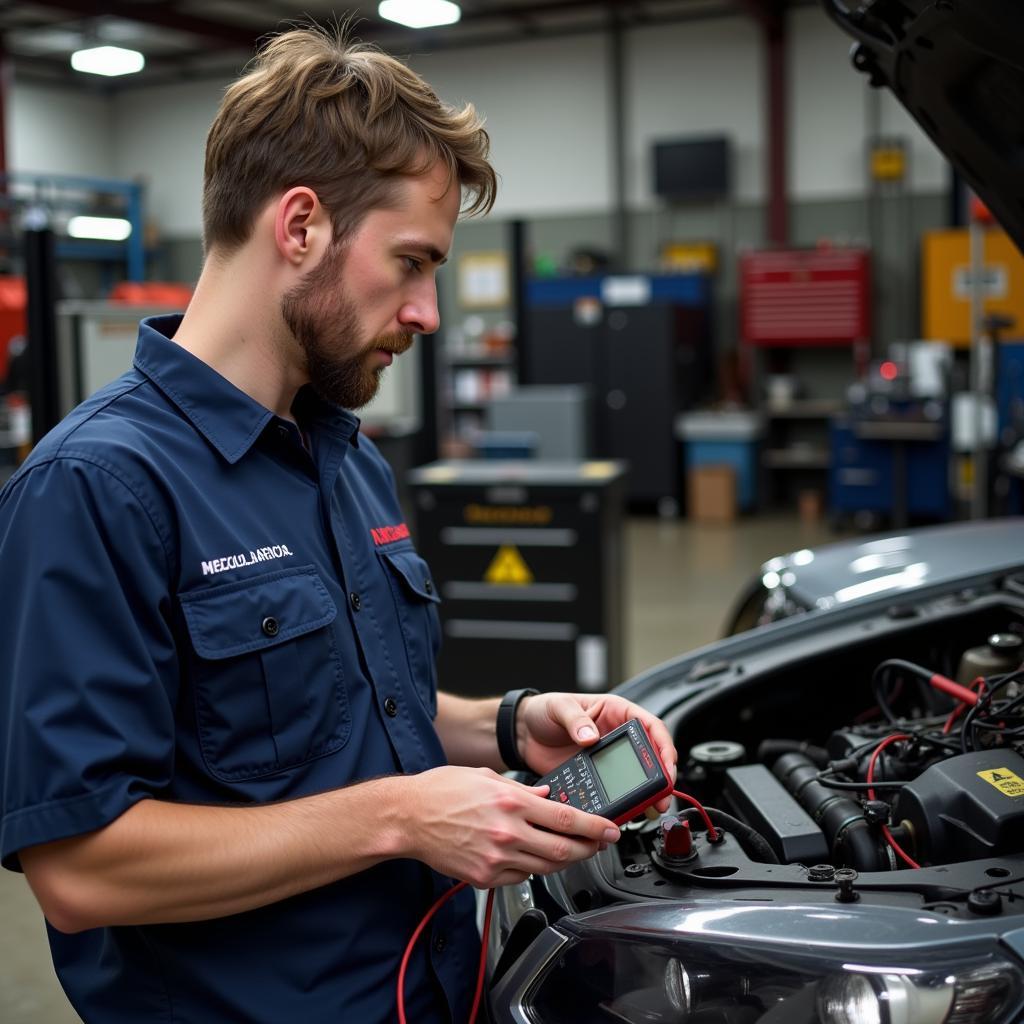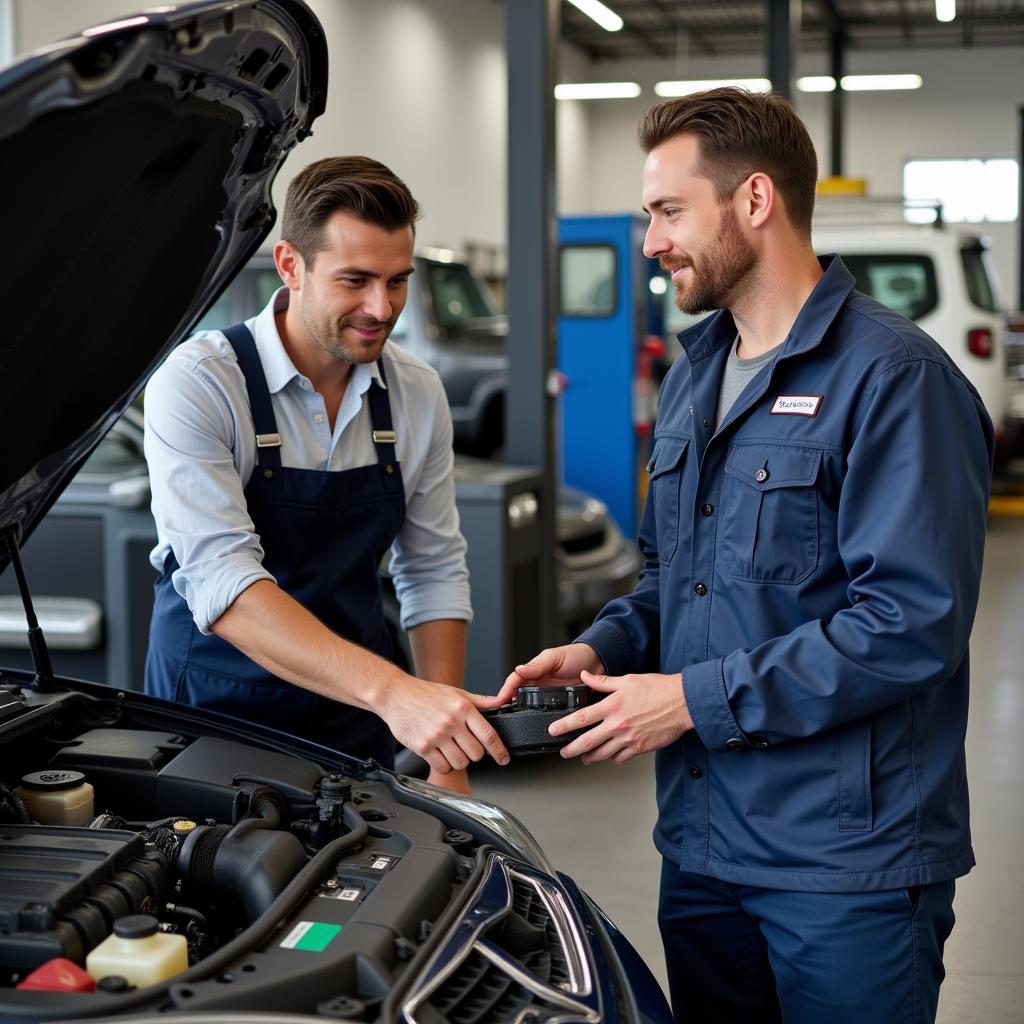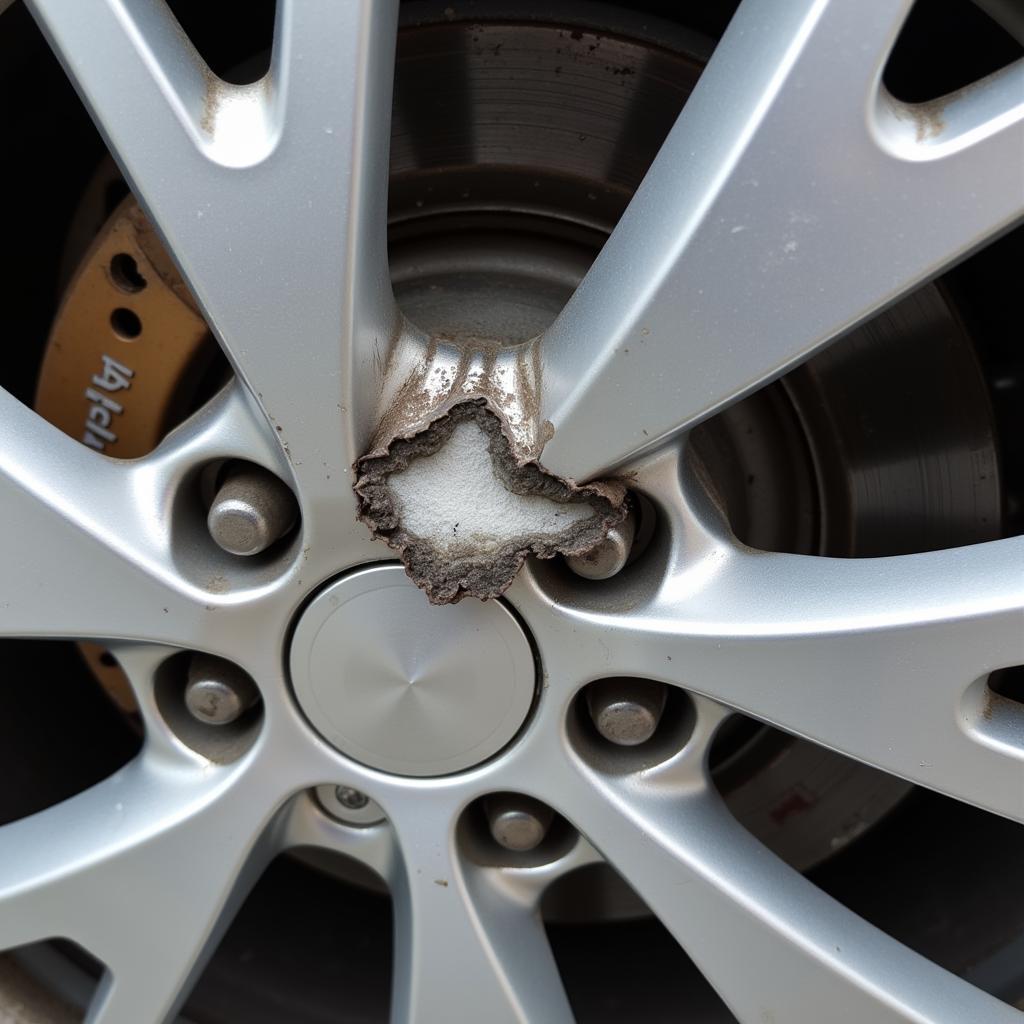Maintaining your vehicle in top condition is not just about ensuring its longevity but also about prioritizing your safety and enjoying optimal performance. Quality Car Maintenance can save you money in the long run, improve fuel efficiency, and provide peace of mind knowing your vehicle is ready for the road ahead. This comprehensive guide will delve into the intricacies of car maintenance, offering valuable insights and practical tips for car owners and enthusiasts alike.
Understanding the Importance of Quality Car Maintenance
Imagine this: you’re driving down the highway, the sun is shining, and suddenly, your engine starts sputtering. A wave of panic washes over you as you realize you’ve been neglecting your car’s needs. This scenario, unfortunately, is more common than you might think and often stems from poor car maintenance habits.
Quality car maintenance is much more than just getting an oil change every few months. It’s about adopting a proactive approach to keep all your vehicle’s components in excellent working order. This involves regular inspections, timely repairs, and a keen understanding of your car’s specific needs as outlined in your owner’s manual.
Key Benefits of Regular Car Maintenance
The benefits of adhering to a consistent car maintenance schedule are manifold and far-reaching. Here are some compelling reasons why you should prioritize quality car maintenance:
- Enhanced Safety: Regular maintenance ensures all safety-critical components, such as brakes, tires, and lights, are in perfect working condition, reducing the risk of accidents.
- Improved Performance: A well-maintained car performs optimally, providing better fuel efficiency, smoother handling, and increased engine life.
- Cost Savings: Addressing minor issues early on can prevent them from escalating into major problems that require expensive repairs.
- Higher Resale Value: A car with a well-documented maintenance history commands a higher resale value, as potential buyers are assured of its reliability.
Essential Car Maintenance Tasks
Now that you understand the importance of quality car maintenance, let’s explore the essential tasks that should be a part of your regular maintenance schedule:
1. Regular Oil and Filter Changes
Oil is the lifeblood of your engine, lubricating its moving parts, reducing friction, and preventing overheating. Over time, oil degrades, losing its effectiveness. Regular oil changes, as recommended by your car manufacturer, are crucial to ensure optimal engine performance and longevity.
2. Tire Maintenance
Your tires are your only point of contact with the road, making their maintenance paramount for safety and performance. Regularly check your tire pressure, inspect for wear and tear, and rotate them according to your car’s specifications. Proper tire maintenance ensures optimal traction, handling, and fuel efficiency.
3. Brake Inspections and Service
Your brakes are arguably the most crucial safety feature of your vehicle. Regular inspections are vital to ensure they are functioning correctly. Have your brake pads, rotors, and calipers checked periodically and replaced when necessary to maintain optimal braking performance and prevent accidents.
4. Fluid Level Checks and Top-ups
Your car relies on various fluids, such as coolant, brake fluid, transmission fluid, and power steering fluid, to function correctly. Regularly check the levels of these fluids and top them up as needed. Low fluid levels can lead to performance issues, overheating, and even component damage.
5. Battery Maintenance
Your car battery provides the electrical current needed to start your engine and power various electrical components. Over time, batteries lose their ability to hold a charge. Have your battery tested regularly and replaced when necessary to avoid unexpected starting problems.
 Mechanic checking car battery with a multimeter
Mechanic checking car battery with a multimeter
6. Air Filter Replacement
Your engine needs a constant supply of clean air to function correctly. The air filter traps dust, debris, and other contaminants from entering the engine. A clogged air filter restricts airflow, reducing engine performance and fuel efficiency. Replace your air filter regularly as recommended by your car manufacturer.
7. Belt and Hose Inspections
Your car’s engine compartment is a network of belts and hoses responsible for powering various components. Over time, these belts and hoses can wear out, crack, or become loose. Regular inspections are crucial to identify any signs of wear and tear and replace them before they fail, preventing potentially costly repairs.
8. Scheduled Maintenance Services
Your car manufacturer outlines a recommended maintenance schedule in your owner’s manual. These scheduled services, typically based on mileage or time intervals, include a comprehensive inspection and service of your vehicle’s critical components. Adhering to these schedules is crucial to ensure your car’s longevity and prevent unexpected breakdowns.
DIY vs. Professional Car Maintenance: Finding the Right Balance
While some car maintenance tasks, such as checking fluid levels or replacing the air filter, can be tackled by car owners with basic mechanical skills, others require specialized knowledge, tools, and expertise. It’s essential to find a balance between DIY maintenance and seeking professional help.
For complex repairs or maintenance tasks that involve safety-critical components, it’s always advisable to consult a qualified mechanic. However, understanding the basics of car maintenance and performing routine checks yourself can help you identify potential issues early on and save money in the long run.
Choosing the Right Car Maintenance Provider
Selecting a trustworthy and reliable car maintenance provider is crucial to ensure your vehicle receives the best possible care. Here are some factors to consider when choosing a mechanic or repair shop:
- Reputation: Look for mechanics or repair shops with a solid reputation for quality workmanship, fair pricing, and excellent customer service. Online reviews and recommendations from friends and family can be invaluable resources.
- Experience: Experienced mechanics are more likely to diagnose and repair car problems accurately and efficiently. Inquire about the mechanic’s experience with your car make and model.
- Certifications: ASE (Automotive Service Excellence) certification is a widely recognized industry standard that indicates a mechanic’s knowledge and skills have been rigorously tested and validated.
- Communication: Choose a mechanic or repair shop that communicates clearly and effectively, explaining the repairs needed, the associated costs, and the estimated time frame.
 Mechanic explaining car issue to a car owner
Mechanic explaining car issue to a car owner
Conclusion: Investing in Quality Car Maintenance is an Investment in Your Peace of Mind
Quality car maintenance is not just about keeping your vehicle in top condition; it’s about prioritizing your safety, maximizing performance, and ensuring a smooth and enjoyable driving experience. By adopting a proactive approach to car maintenance, understanding your vehicle’s needs, and seeking professional help when necessary, you can enjoy years of trouble-free driving. Remember, investing in quality car maintenance is an investment in your peace of mind. For expert advice, customized maintenance solutions, and reliable car care services, contact AutoTipPro at +1 (641) 206-8880 or visit our office located at 500 N St Mary’s St, San Antonio, TX 78205, United States.
FAQs:
1. How often should I change my car’s oil?
The frequency of oil changes varies depending on your car’s make, model, and driving conditions. Refer to your owner’s manual for specific recommendations. Generally, it’s advisable to change your oil every 3,000 miles or every 3 months, whichever comes first.
2. How do I know if my tires need to be rotated?
Uneven tire wear is a telltale sign that your tires need rotation. Other indicators include vibrations in the steering wheel or a pulling sensation while driving.
3. What should I do if my check engine light comes on?
If your check engine light illuminates, it’s crucial to have your car diagnosed by a qualified mechanic as soon as possible. The check engine light can indicate a wide range of issues, some minor and others potentially serious.
4. How can I improve my car’s fuel efficiency?
Maintaining proper tire pressure, adhering to your car’s scheduled maintenance, adopting fuel-efficient driving habits, and reducing unnecessary cargo weight can significantly improve your car’s fuel economy.
5. How do I choose the right car maintenance service for my needs?
Consider factors such as the shop’s reputation, mechanic’s experience, certifications, communication style, and pricing when selecting a car maintenance service provider. Online reviews and recommendations from trusted sources can be helpful.
6. Is it always necessary to take my car to the dealership for maintenance?
While dealerships have specialized knowledge of your car’s make and model, reputable independent mechanics can also provide quality car maintenance services.
7. How can I extend the life of my car battery?
Regularly cleaning the battery terminals, ensuring the battery is properly secured, limiting short trips, and avoiding extreme temperatures can help prolong your car battery’s lifespan.





Leave a Reply